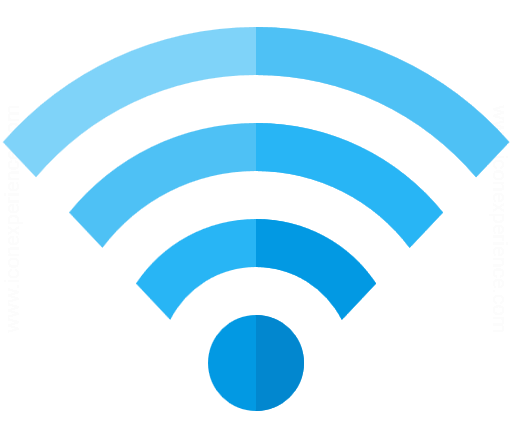You’ve probably heard this term before. If you have any techie friends, they probably have one. But what is a “guest network?” The name itself might not be enough to explain it all.
A guest network is essentially a way to connect to someone’s Wi-Fi without them giving you access to any of their computers. It’s a polite way of saying, “I trust you but I don’t trust you that much.” But that’s ok. I think we all agree with that old Russian proverb, “Доверяй, но проверяй,” or in English “trust, yet verify.”
Giving your guests access to some Wi-Fi service is just good hospitality, but letting them have full run of your sensitive data doesn’t make a lot of sense.
The details of a guest network
The capability to have a guest network is built into many routers and it’s really just a matter of software. In fact a guest network is the easiest thing for a manufacturer to add to their routers because it’s actually just a regular network with stuff taken away.
See, you think of your internet connection as one big happy thing, whether it’s wired or wireless. But actually it’s (at least) two different networks that communicate with each other using predefined rules. These are common-sense rules, like:
- Everything on the wireless network can see everything on the wired network.
- Everything on the wired network can see everything on the wireless network.
- If you look for something, and you can’t find it on any network that the router can see, then try the internet.
This is kind of an oversimplification but you get the idea. When one device is part of a network, it’s constantly searching for other devices. Because of a router, one device can see all the devices connected to that router (wired or wireless) and all of them can see the internet. The internet can’t see any of the devices but the router (which is good, so people can’t steal your stuff.)
So a guest network is just a second Wi-Fi network where most of this stuff doesn’t happen. Your computer can’t see anyone else’s, period, and all it can see is the internet. Most of those “rules” by which a router actually works are suspended. It’s safer that way, the same way you can’t open a door that you don’t even know is there.
Enabling a guest network
It’s generally pretty easy to set up a guest network. A lot of modern cable company routers have “wizards” that you can use to set things up for you. If you need to do it manually, you should download the user guide for the router you have. (Googling the model number of the router and the word “manual” will generally get you there.) You can read up on creating a guest network. It’s usually not so hard but it’s different on every router.
If your router has a “guest network” feature, you really should enable it because then you can give the password to your friends and know that no one who steals their phones could potentially park outside your house when you’re not home and hack into your computers. You think this doesn’t happen? In fact, if you have a guest network, you can feel a lot more comfortable using a dumb password like “123456” because yes, people could mooch off your internet but they won’t be able to get too far into your router. I’m not saying you should use a dumb password but if you are going to anyway, use it on a guest network.
Get what you need from Solid Signal
Solid Signal has networking accessories, cables, and everything you need to create the best possible result when you set up or upgrade your home network. Check out the great selection at SolidSignal.com, or call the experts at 888-233-7563. If it’s after hours, fill out the form below. We’ll get back to you, usually within one business day.





